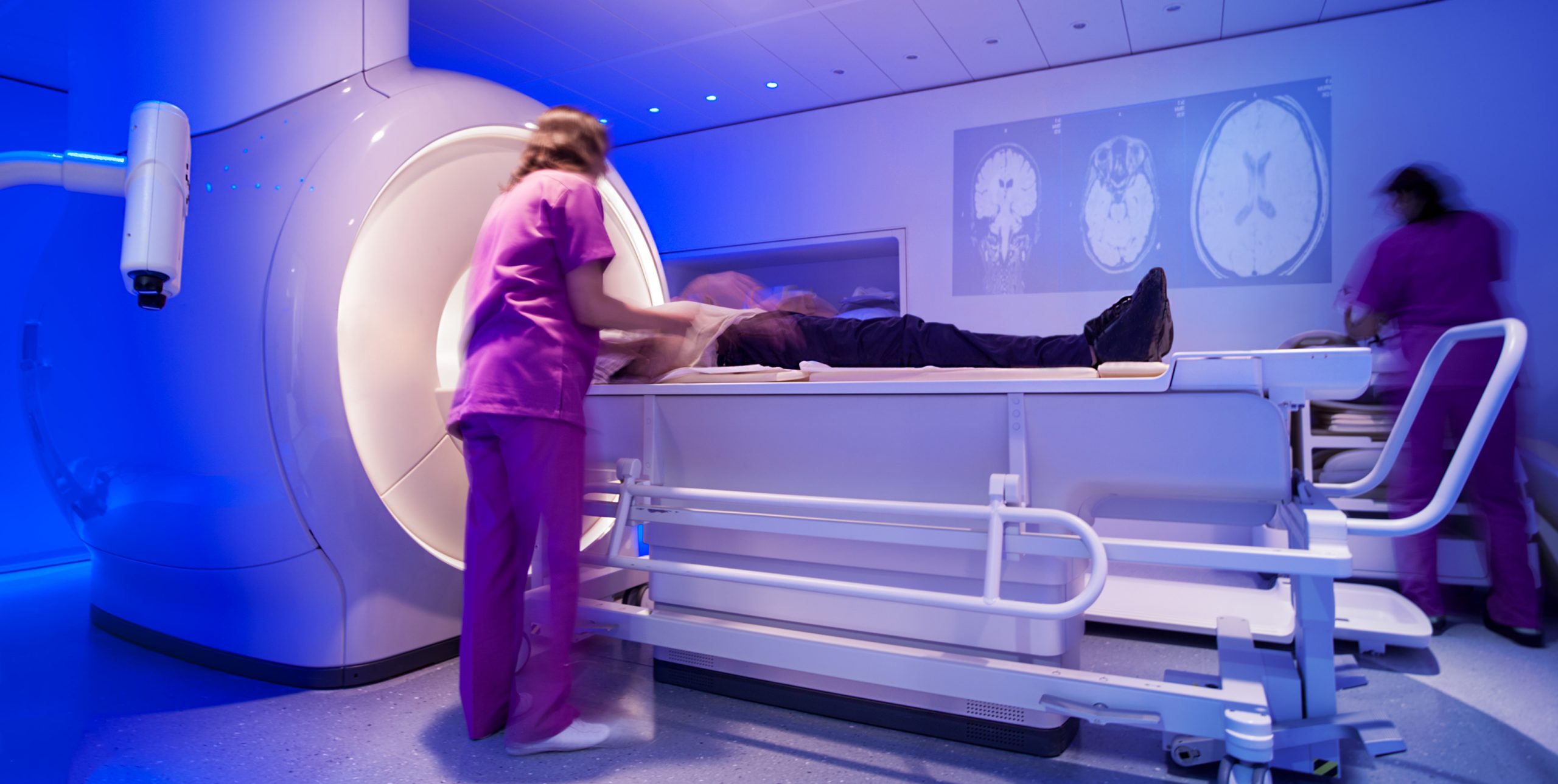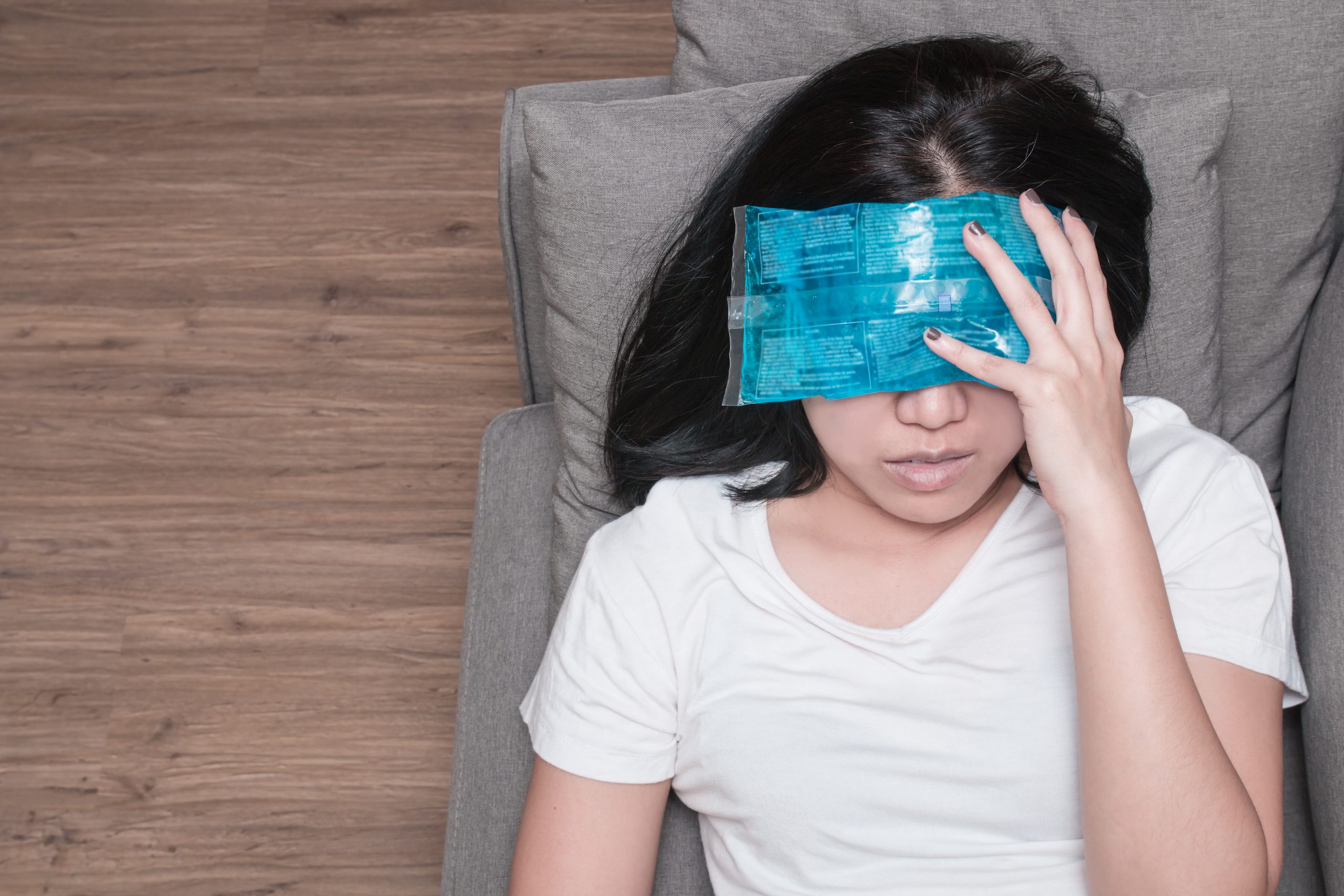Adult Migraines and Headaches: Information and Resources
Headaches are uncomfortable throbbing sensations that occur in the head and upper neck. Headaches happen as pain signals travel across the brain, blood vessels and neighboring nerves.
There are several types of headaches:
- Migraine headaches: These are recurring attacks of headaches or other neurological symptoms, often including an aura.
- Vascular headaches: These include ‘cluster’ headaches and are repeated, intense painful episodes. They may be high-blood pressure headaches.
- Muscle contraction (or tension) headaches: These headaches involve a tightening of facial, as well as neck muscles.
- Secondary and inflammatory headache disorders: These tend to be symptoms of other disorders. These disorders can range from a sinus infection to a stroke.
- Neuralgias: Characterized by a sharp, debilitating pain that occurs along the path of a nerve. This is due to irritation or damage to that nerve.
Headaches can be primary headaches, meaning not caused by another medical condition, or can be warning signs of more serious medical conditions. It is important to speak with your doctor about your headaches or health concerns.
The most common type of primary headache is a migraine. Migraine headaches are characterized by extreme pain on one or both sides of the head. They may also be accompanied by an upset stomach, as well as distorted vision.

Factors that Result in Headaches
There are other reasons for headaches.
These include:
- Head injury or trauma
- Eyestrain
- Stress
- Depression
- Alcohol and substance abuse
- Irregular sleeping patterns
- Missed meals
- Environmental stimuli (changing weather, noise, and strong smells)
Factors that Result in Headaches
There are other reasons for headaches.
These include:
- Head injury or trauma
- Eyestrain
- Stress
- Depression
- Alcohol and substance abuse
- Irregular sleeping patterns
- Missed meals
- Environmental stimuli (changing weather, noise, and strong smells)

Treating Headaches
Headaches are most often treated with over-the-counter medications. But if you suffer from recurring headaches, then you may need to consult a neurologist. This is also true if your headaches are occurring more frequently. During your visit, the neurologist will perform a physical exam. From there, they will evaluate the underlying reasons (if any) for these headaches.
The type of headache that you suffer from will determine your specific treatment plan. Treatment may include a combination of medications, behavioral modifications, stress management, and counseling. Specifically, treatment involves:
- Drug therapy
- Biofeedback training
- Reducing stress
- Eliminating certain foods
- Regular exercise (such as swimming, and vigorous walking)


![]()
Outcomes of Headaches
If the headache is associated with an underlying medical condition, evaluation and treatment of the underlying medical condition is important.
For primary headache disorders, there are many potential treatments to help alleviate the frequency and severity of the symptoms.
![]()
Outcomes of Headaches
If the headache is associated with an underlying medical condition, evaluation and treatment of the underlying medical condition is important.
For primary headache disorders, there are many potential treatments to help alleviate the frequency and severity of the symptoms.

Accessing Healthcare
for Headaches
If you are suffering from frequent, worsening, or constant headaches, then you should seek medical attention. Our experts at Family Neurology can diagnose the underlying reasons (if any) for your headaches. We can also provide the treatment suitable for your case. Please feel free to contact us today for an initial consultation. Let us help you to regain your best health.


Headache Resources
Research Institutions
The National Institute of Neurological Disorders and Stroke (NINDS) conducts research to improve the diagnosis of headaches. This research will also inform headache prevention and treatment and also methods to resolve any underlying conditions. The NINDS also provides grants to major medical institutions across America for similar research programs.
Organizations
American Headache Society Committee for Headache Education (ACHE)
This is a nonprofit patient-health professional partnership. It promotes the treatment and management of persons with headaches.
Migraine Research Foundation
This foundation helps people with migraines by providing information and support. It also fundraises for innovative research into the causes of migraines and better treatments of this condition.
National Headache Foundation
This non-profit organization helps headache sufferers, their families and medical professionals. It promotes research about the causes and treatments of headaches. They also educate the public about headaches.
Headache Resources
Research Institutions
The National Institute of Neurological Disorders and Stroke (NINDS) conducts research to improve the diagnosis of headaches. This research will also inform headache prevention and treatment and also methods to resolve any underlying conditions. The NINDS also provides grants to major medical institutions across America for similar research programs.
Organizations
American Headache Society Committee for Headache Education (ACHE)
This is a nonprofit patient-health professional partnership. It promotes the treatment and management of persons with headaches.
Migraine Research Foundation
This foundation helps people with migraines by providing information and support. It also fundraises for innovative research into the causes of migraines and better treatments of this condition.
National Headache Foundation
This non-profit organization helps headache sufferers, their families and medical professionals. It promotes research about the causes and treatments of headaches. They also educate the public about headaches.

Call Us to Make an Appointment
Phone: 713-589-7020
Fax: 713-999-9095
3301 Plainview St, Suite 8
Pasadena, Texas 77504

